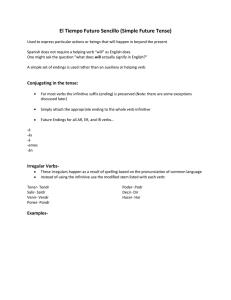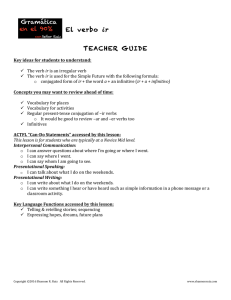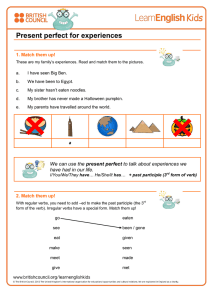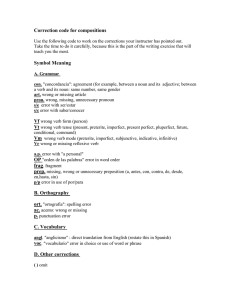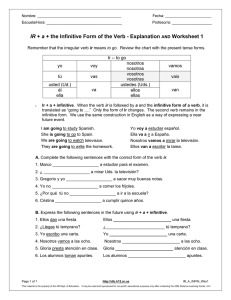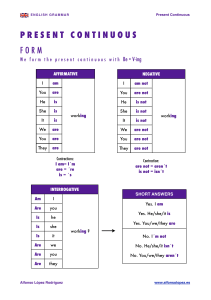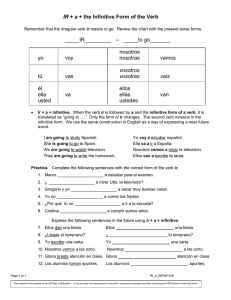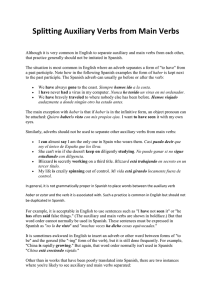1130-a ingles i presenta - Universidad Metropolitana Latin Campus
Anuncio
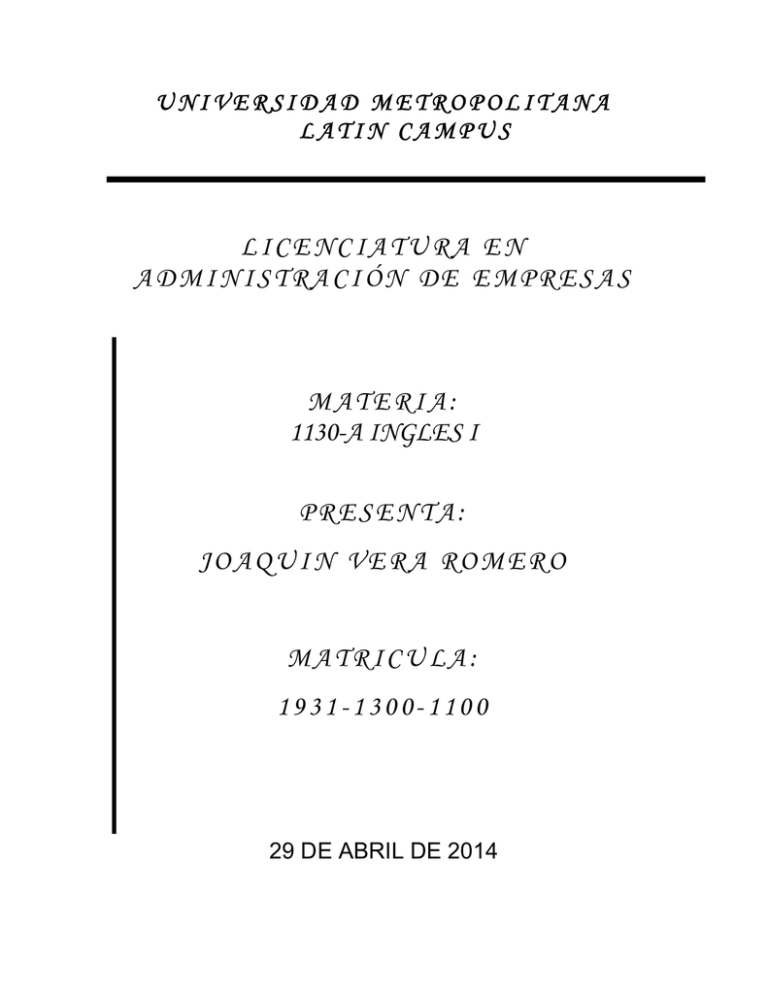
UNIVERSIDAD METROPOLITANA LATIN CAMPUS LICENCIATURA EN ADMINISTRACIÓN DE EMPRESAS MATERIA: 1130-A INGLES I PRESENTA: JOAQUIN VERA ROMERO MATRICULA: 1931-1300-1100 29 DE ABRIL DE 2014 1. Personal pronouns I You He She He/she (object) We You They 2. The personal pronoun must match with the verb however, English verbs, except auxiliaries, do not change, except the third person of the singular. I eat apples You eat apples He eats apples. 3. The verb “to be” is equivalent to the verbs “ser” and “estar” in Spanish. Its declension in the present tense of the indicative (present simple) is the following. I am You are He/she is It is We are You are They are 4. Its declension in past tense (past simple): I was You were He/she was It was We were You were They were 5. Is also used as auxiliary verb to create the continuous forms. I am running I was running And to construct the passive form: The table is made of wood. 6. The verb “to have” in English is equivalent to the verbs “haber” and “tener” in Spanish. Its declension in the present of the indicative (simple present) is the following: Yo tengo Tú tienes Él/ella/eso tiene Nosotros tenemos Ustedes tienen Ellos tienen. 7. The verb “to have” can be used as an ordinary verb and in this case it has the meaning of “tener” Yo tengo un coche. Ella tuvo un novio. 8. As an auxiliary “to have” is used to construct the compound forms: I have read. She had played tennis. We have watched a movie. 9. As an auxiliary, the verb “do”, is used to construct the negative and interrogative forms of the present and past simple: I don’t know that. You didn’t answer correctly. Do you go to the cinema? Didn’t you see that film? 10. In the negative and interrogative forms it is used a similar structure: we use the auxiliary verb “to do” in its past tense, and it goes with the main verb in its infinitive form. I didn’t go to the party. Did you go to the party? 11. If the infinitive verb ends in “e”, we only add a “d”. To love – loved To smile – smiled 12. If the infinite ends in “y”, after a consonant, so this letter “y” transforms into “I” and we add “-ed” To carry – carried To study – studied 13. If the infinitive verb is formed by one only syllable, with one only vowel and it ends in consonant, so this consonant is doubled. To stop – stopped To ban – banned. 14. Last, we double the last consonant of those verbs whose infinitive end in “l” after one only vowel. To signal – signaled To cancel – cancelled 15. The gerund (presente participle) is formed by adding the “-ing” ending to the infinitive, although with some peculiarities that we’ll see in the following lesson: To listen – listening To read – reading To hear – hearing 16. El “presente participio” is used in English to form the continuous tenses. Its equivalent in Spanish is the gerund. I was reading – yo estaba leyendo They are eating – ellos están comiendo. También se utiliza a veces como adjetivo: That is boring – eso es aburrido The book is interesting – el libro es interesante.
